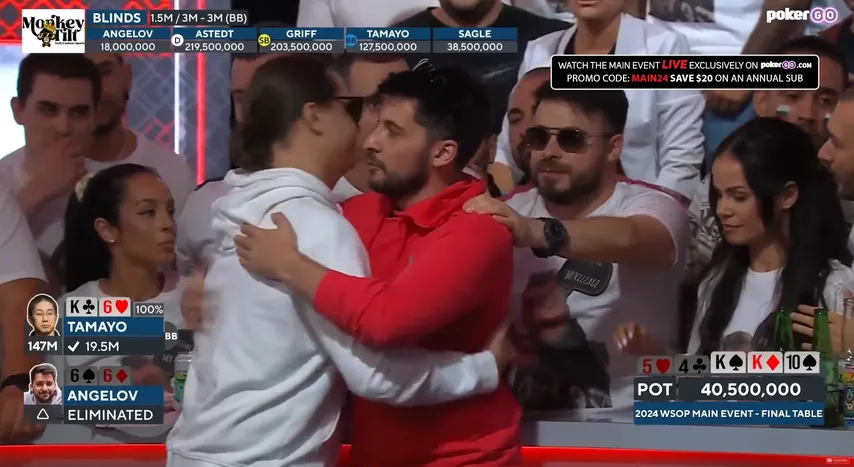Andrew Brokos – Hello and welcome to episode 448 of the Thinking Poker podcast from Catonsville, Maryland. I am Andrew Brokos.
Carlos Welch – And from Las Vegas, Nevada, I'm Carlos Welch.
AB – We will be joined shortly by our guest, Stoyan Obreshkov, who I didn't get a town name from. I probably wouldn't have been able to repeat it anyway, but he was in Bulgaria at the time that we spoke to him, which is where he lives.
I don't know how many people will know Stoyan's name. If you're not on GTO Wizard and engaged with their coaching, you might not have come across it. I wasn't really familiar with him prior to that. I think he's also a Run It Once coach, but this was just an amazing interview. I want to make sure I give you credit because he was your suggestion. I'd seen some of his stuff, and I thought it was good. It hadn't really occurred to me. It was really your encouragement that got this over the line.
CW – Yeah, the thing that really made me want to talk to him was his focus on ICM. I know a lot of the more recent work that you and I have done together has also been focused on ICM. And so anybody that's at the forefront of Brokos' understanding of ICM, I definitely wanna talk to and learn more from.
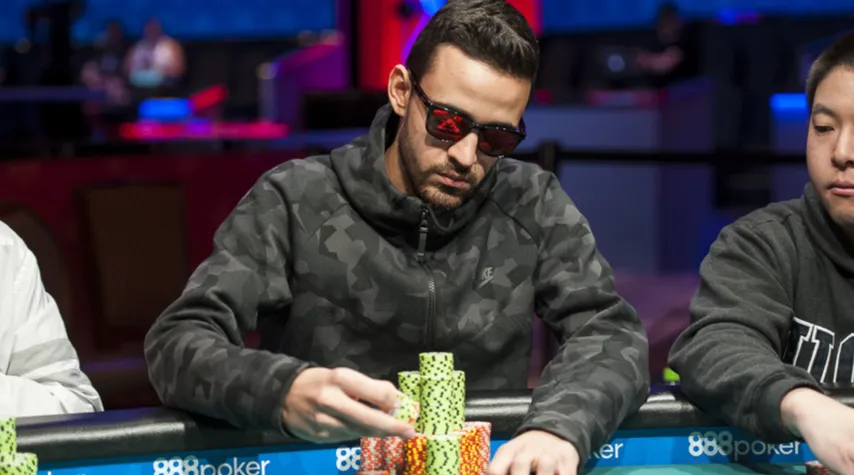
AB – So first off, thank you for doing this. We're looking forward to talking to you.
Stoyan Obreshkov – Yeah, it's very exciting for me as well. Just the experience of talking things out, posing from all my other stuff, posing from all the assignments and kids and everything, and talking about what I actually love doing often helps me see things that I don't see in the rush. Right?
AB – In the rush of like, playing and studying and life, you mean?
– Yes, exactly. So sometimes I even think that this type of session, so of course, a podcast – they give me more insight into my own leaks and path to progress. They give me so much value that it might be even better for me, than for the audience. Yeah, it's great. I love it.
AB – I hope so. Do you still live in Bulgaria?
– Yeah, I actually live in my hometown, five minutes away from the place where I grew up. My parents live here. And since I have two little kids, one and three, that's key for managing work and everything else. So... Yeah, that made a difference when we were making a choice where to live with my wife. I obviously want to go to a better time zone if we talk about online poker because the time zone here is pretty tough to deal with. We finish sessions at like 4, 5, 6 AM, sometimes 8, 9 AM if we're deep in ACR, for instance.
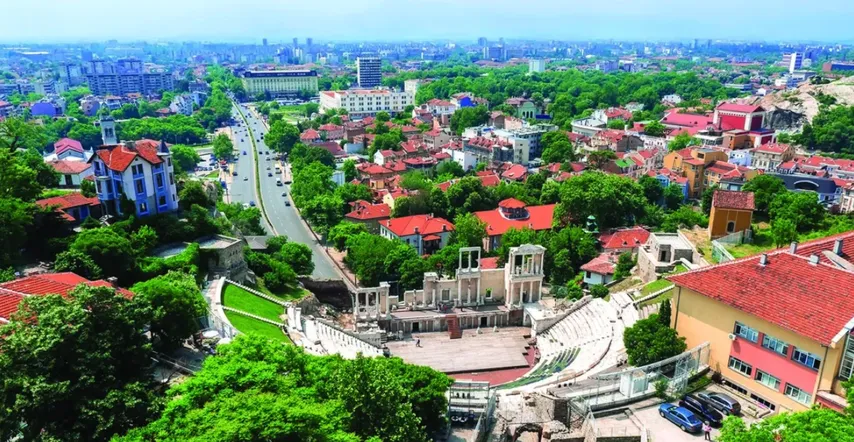
So yeah, that's pretty much the only drawback. when it comes to living in Bulgaria. But I wouldn't really sacrifice everything else just for the time zone. In the future, I might go play the series from Costa Rica or Mexico or anywhere in the world that gives me the chance to wake up at 7 am, go take a dip in the ocean, have some fresh mangoes for breakfast, and fire up a session. That would be nice. Yeah, everything comes with a price. Where are you, by the way?
AB – I'm on the East Coast of the US, outside of Washington, DC.
– Okay, I was about to ask if you're in Jersey, because it's a good place for online poker, as far as I know.
AB – It is. Yeah, I'm pretty close to it. I'm only like a three-hour drive from Jersey. And then Carlos is in Las Vegas, which is of course a good place for poker.
– That's yeah, that might be the best.
AB – Not as good as it used to be. I don't think it's even, I think that's maybe not even top five in the United States anymore for live poker. I think California is definitely better. Texas, Florida. I mean, that's just off the top of my head.
– Are you talking tournaments and cash games combined or only tournaments or only cash games?
AB – Probably more cash games, honestly, although he mostly plays tournaments. He actually doesn't play very much live poker.
– Yeah, I think for cash games Vegas is nothing special because I guess the games have dried up over time and there are some regulars over there. Games might be tougher than Texas, especially during the series. But for tournaments they have pretty regular, decent tournaments I would say. So for live tournaments, it might be the best one I think. I'm not 100% sure.
Poker at 12, Losing a Scholarship, and Life Changes
AB – How long have you been doing it for?
– Poker? So, the first time I encountered the game was at 12, now I'm 31. But from 12 to 15, 16, I can't say I was really playing. I thought it's like luck-based games such as roulette and blackjack. I didn't know there is really a big edge to be gained. At that point, so that was 19 years ago, what, 2005? There was not much strategy. There were no solvers and you could read an article on how to c-bet from someone who came up with an intuitive strategy. But that was pretty much what we could find as study tools and resources online for the white audience. I know there were guys who were studying at a much deeper level, but very few, a handful of guys in the whole world.
So then at 15, 16, I I was still competing in tennis and I had an injury which made me lie down for a month. It was my knee, nothing really super serious, but I had to be in bed for a month almost entirely. And that's when I rediscovered poker through a friend who said that there is money to be made. And you know, at that age, if there is money to be made, you have to explore the path.
And then, yeah, it was just a desire to be independent from my parents and, you know, own the world. What everybody wants to do when he's 16, 18, 20 years old. In university, I was already relying on poker for money and for, you know, everything that I wanted to achieve, I knew that I could get the money from poker for achieving it. So it was already in my mind that this is the way to make money. And I was really enjoying the game also. So I was 100% into it. So I lost half my scholarship at some point, which made me play more poker to pay for it.
AB – You were on a tennis scholarship?
– No, I was in a good grade score. I got into the university with certain SAT points and they gave me a full scholarship, which was not that rare. It was funny because I lost half of it and the question was how are you going to pay for it? And I knew the answer.
CW – How did you lose it?
– I lost it because I was playing so much. You know, I was, I remember I was taking a big bag, uh, full of, um, you know, laptop monitor, mouse keyboard, everything that I need for the grind, some food and going to the apartment of my friends on Friday. And I was coming back on some clothes, of course, on Monday, 10 AM after the Sunday grind, which finishes at 6, 7 am and going straight into the first class for the week. So, and they wanted 5.5 GPA. So it was a matter of time to get below that.
Since then, I built my bankroll around that second, third year, I think the second year it might've been or third in university. And since then I started traveling, playing the live circuit, mostly EPTs and eventually WSOP and some tournaments in the States. Yeah, I was traveling, playing poker and living the dream up to 2020 when I came back home and COVID, the pandemic hit and I had to stay home. So I met my wife now and my career path slightly changed, right? Everybody's life changed in 2020 in some way.
We had to stay home. We had to pause. We have to slow down. Think about us. Think about life. Think about the future a bit more. And yeah, then she got pregnant and I realized that it's either a fold or an all-in with that decision. And it was, yeah, I mean, I didn't really have a decision. I felt with my whole being that it's meant to be and that I have to give up some part of my poker dream because I knew that I wouldn't be able to travel as much and play everything and probably wouldn't be able to be number one in the world, which was really tough to accept, right? Because, that was what everybody was striving for, to be number one in the world. Having to admit, okay, in the next four or five years, building a family, I won't be able to be 100% in poker. So I probably won't be able to climb to the top, right?
Then I realized that achieving my full potential might be taking a different path. It's not always what we have in our mind and 100% guessing every step on the way. Sometimes you go left, sometimes you go right in the search of your full potential and eventually might end up in a totally different place. This actually happened because then I needed to switch from a night schedule to a day schedule so I could spend more time with my family. And this is how I found coaching and I really, really enjoy doing that. So it's, I think it's my purpose and mission to develop in education, in that sphere, right? It's now poker. Maybe in the future, I'll turn to something else, but I found part of myself that I didn't know about at that point.
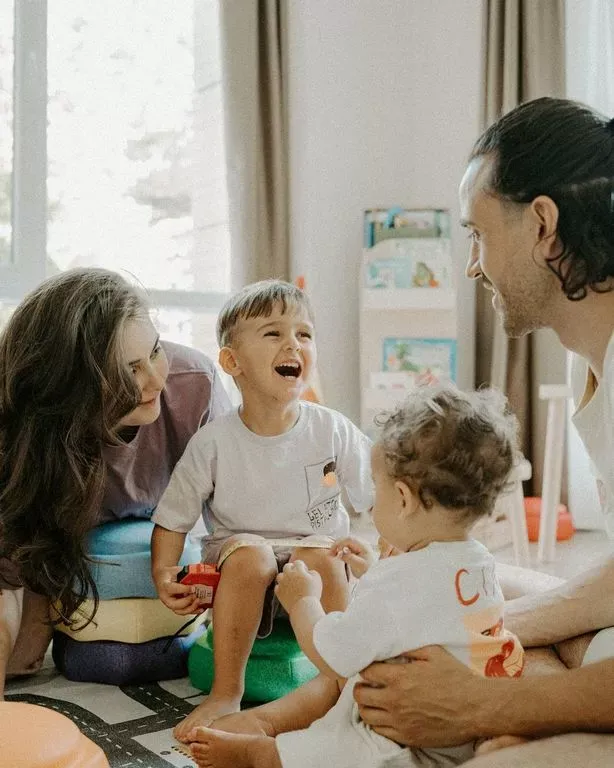
AB – Was there ever like how seriously were you taking tennis at the height of it? I mean, was there a time when you thought that was going to be your pursuit of full potential?
– I'll tell you a short story. My mom and I were having a conversation. I was probably 10 years old and I told her I'm going to win Wimbledon. And she doubted that. So she, she had some doubts and I felt that she has doubts. I couldn't understand in my mind how she can have a doubt about that. I was like, "How can you even think that this is not going to happen? It's going to happen."
I was so sure it's going to happen. So I guess from young age, I always, maybe I even had a self-confidence higher than, you know, my skills at that point. But yeah, I always fully commit when there is a competition and, you know, it's just what brings out the best in me. So for instance, in tennis, in practice, I might lose against weaker players, but in a tournament, I might beat a better player than me pretty often, right? Because it's the game on, it's the competition, now is the time. And this is probably why I found myself in tournament poker. Because, tournament poker, it's a lot about that.
Being able to operate well and keep your composure after 10 hours of online play at 20 tables or after 6 days in the Main Event or whatever tough situations, or high-pressure spots that you have. So tennis was everything at the time, then poker was everything at the time and yeah, I guess we'll see what the next thing is but poker is still pretty much everything that I do.
Poker Before Family Obligations
AB – Before you had the kids, when you were kind of at your most committed to poker, what did that look like? Like what was the split between playing and practicing, playing online versus playing live?
– So let's say that I've been playing professionally for 12 years since I was 19, starting from playing my with gut and having no idea about strategy going through a time where I was in a stable and I learned the basics of studying condensed solvers and everything. So my methodology changed over the years many, many times. There was a moment where I was counting study hours to play hours and I was keeping a certain ratio. I remember it was about three to one. So if I played 30 hours, I should study 10 hours.
Before the kids, so 2019, 2018, 2019, I guess, still I had moments of, you know, being 100% into poker, studying core playing, and then having some time to, you know, explore life. I feel that I operate best when there's a series, so I give 100%. Then there's the low tide, so high tide, low tide. In the low tide, I kind of slow down and recover and then look at the bigger picture, and make some adjustments. So it has never been a strict schedule, following rules all the time. It has changed. My way of doing things has changed over time pretty frequently, obviously influenced by fellow players. coaches, everything that I've read and listened to. And I think that's how it should be. We change every second and keeping the same thing for many years, especially in an industry as competitive as poker and fast-changing – I don't see how this works in the long term to stay ahead of the curve, right? because the curve is moving pretty quickly in poker nowadays, especially if you're playing, you know, mid or higher stakes.
AB – I think not just the curve, but even the skills that are prioritized. You know, if you think back to, I mean, going back, I don't know, 40 years, pre-internet poker and what it took to be a successful poker pro. I don't know that even understanding the strategy of poker, you know, might not have even been in the top five compared to, money management, finding good games, things like that. You know, in kind of a pre-poker boom era.
– Live tells.
Networking and Stacking Edges
AB – Who's on your team? Who are the people that you've surrounded yourself with?
– So that's actually a question that I really like because when I say it, it almost feels like I'm bragging. I believe I surrounded myself with great players and very different from each other. So, Barak Wisbrod brought a cash game beast, one of the best in the world.
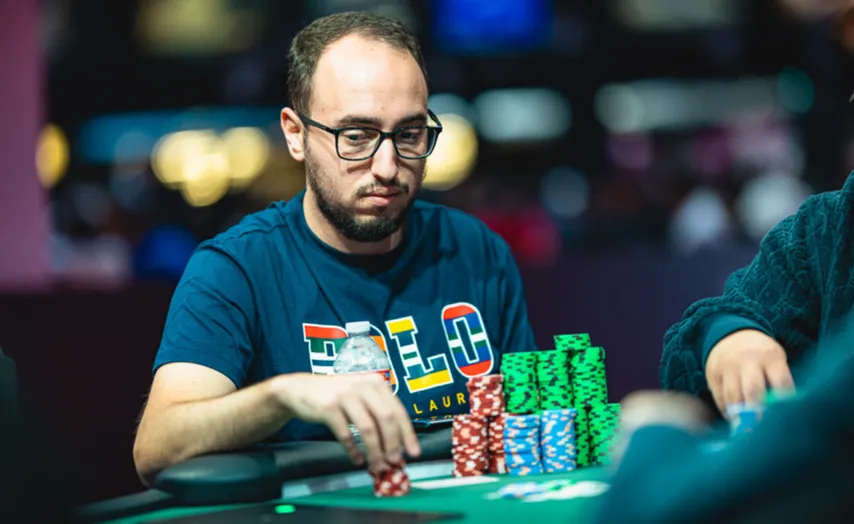
Alex Kulov, MTT beast, one of the best in the world. Boris Angelov, who just made the final table of the WSOP Main Event and EPT Monte Carlo second place this year as well. A young gun with huge potential. Boris Kolev, Bulgarian, another Bulgarian with a lot of success. He has a bracelet and actually two bracelets, although one of them is from the Bahamas. He has a lot of success in life and he certainly has a different point of view from anyone else. He's the, "I don't touch the solver" guy. He's that guy. One of them.
And then I try to keep close connections with good players that I vibe with and try to bring our leadership to a win-win where we learn from each other or we work with each other in a way that we progress. That's a list of at least 20 players all over the world. And I think this is what actually makes a difference when you travel and for anything in poker pretty much, having the right connections helps a lot.
CW – Even the other coaches at GTO Wizard, I imagine it's got to be helpful just being associated with those guys as well.
– Yeah, all the platforms I work with, all the coaches that we're in contact with. Of course, I'm not in contact with every coach on Run It Once or every coach on CNC. We all have our own lives and schedules and they're often very busy. So we don't work with everyone in our study groups, right? But I'm happy to be associated with, I believe, one of the best coaching platforms out there. Having these guys around me, there is always something to learn. So if I decide to spend all my time on this court or whatever, talking to poker players, I will be learning all the time.
It's just that at some point there is a trade-off, right? In order to keep that balance. You know, you have to turn off your computer and give, you know, some rest to yourself and develop in other areas and go hit the gym and do other stuff as well. So yeah, I just believe that you have to be working on the whole thing, right? You have to be paying attention to details so that you stack this 1% plus 1% plus 1% edges, to get to a decent edge.
Only working on your game, at least for me, it's not enough. I'm not a natural who just goes there and then performs best in every single spot. I had to make mistakes and I had to learn and analyze and go through breakdowns and just experience all of it to get to a point where I'm now I'm pretty confident to play in big spots. I'm actually ready and excited for every big spot. I think that's when I feel on my own ground.
When it's a big spot, I know that many players will be shaken by it, but I'm waiting for it.
A Friend Final Tables the WSOP Main Event
CW – Speaking of big spots, what was the experience like having a friend make the final table of the Main Event?
– It was a mix of emotions, all of them positive, of course. The whole story goes like this.
I met him when he was playing cash games and he was not feeling that, you know, he's satisfied doing what he's doing. So he wanted some change and he came to tournaments. I was backing Boris for some time, working a lot with him, probably the guy that I've spent most hours working with. Eventually he became so good that, you know we started working together as, he's my coach, I'm his coach. You know, we're a team. He was not getting the results still. There was something missing.
Eventually, he won some tournaments online, but not a big, not like a huge score. It was just like a series of tournaments that he won. And that was a confidence boost. And then the momentum started building up.
Monaco came, or EPT Monte Carlo came, and he was already on a decent upswing. (Editor note: It looks like Boris had some trouble receiving his prize for the EPT Monte Carlo Main)
He performed well on that final table, for the most part. I was watching him and, you know, that gave him an even better boost. And at this point, you know, I knew that that's not gonna be the end of the upswing because I saw him, his confidence growing, him playing well in a big spot. Exactly what I said a while ago that. You know, the players that succeed, the best players in the world, almost all of them are unbreakable in big spots. They're just able to concentrate in big spots. I have a lot of examples and you have a lot of examples of players like that.
I'm very happy and proud that Boris managed to play well in the biggest spots of his life. So that was probably the feeling of being proud as my friend and student and coach, even I can call him that, made it so big.
Also, there was just the pure raw emotion of shouting out there and being the animals that are going to dominate the rail. That was great because we're one tribe. Bulgaria is small, we're six million people. So there was this tribe that was shouting louder than anyone else. There was no second to us. You know, there was our rail and some other guys pretty much for the most part. Right. There was some, some, you know, shouting from other rails. But for the most part, I felt like we are dominating and he felt that and we're bringing his energy up all the time and I felt that.
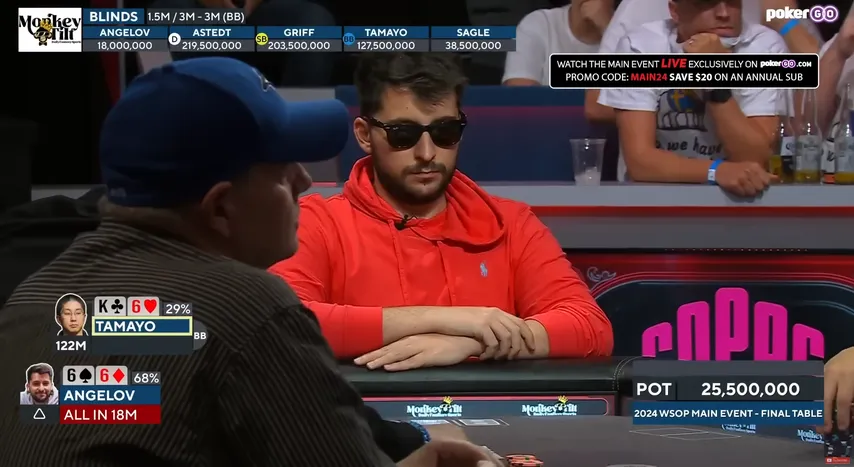
He said that this has helped him a lot. I mean, we could feel it. We were talking about it in the rail that we're actually helping him a lot, in the moment. So it was great. It was an unforgettable experience. I'm going to be telling stories about this and listening to them probably for the rest of my life. Maybe no other Bulgarian will make the final table in the next 50 years. It's a 10,000-field tournament where there are what? Like 30 Bulgarians. It's not a big chance. Even if we're the 30 best players in the world, it's not a big chance. So yeah, that's gonna stay with me forever.
